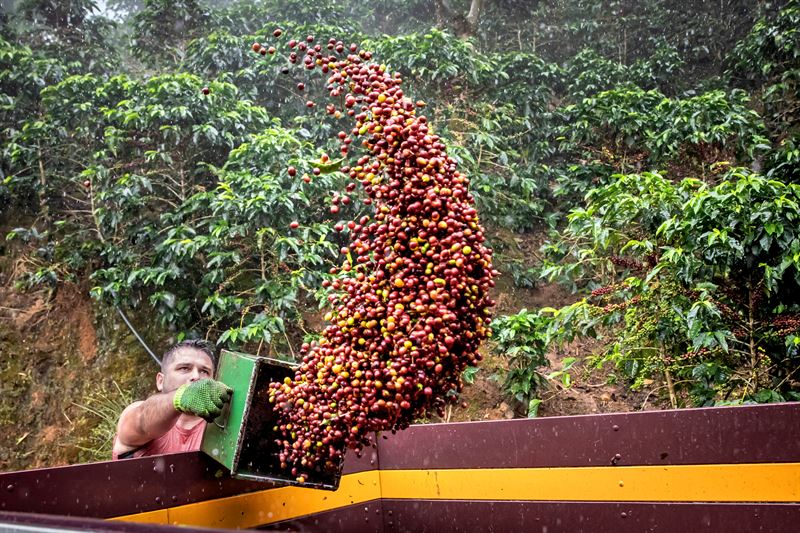
Paulig drives the sustainable future of food
The food and beverage industry is an important part of global climate solutions and, therefore, Paulig has recently launched ambitious sustainability targets that accelerate its sustainability work. Paulig’s role as an international food and beverage company is to offer new flavours and inspire consumers with more sustainable choices that do not compromise taste or convenience.
“The world is facing environmental challenges and we recognise our responsibility to all future generations and the future of food. Through our commitment to science-based climate measures, we contribute to mitigating climate change and enable more sustainable choices for consumers and customers,” says Rolf Ladau, CEO of Paulig.
Paulig has ambitious climate targets
“We are very pleased to have our climate targets approved by the Science Based Targets initiative. The system brings clarity and it helps us manage our climate work as we can be sure our climate actions are aligned with the Paris Climate Agreement’s 1.5°C. We want to inspire all companies to raise their ambitions by showing that a 1.5°C compliant business model is possible. Paulig also wants to drive development where science-based targets become a business standard,” says Lea Rankinen, Paulig’s Sustainability and Public Affairs director.
The majority of Paulig’s greenhouse gas emissions come from the company's value chain and are linked to raw materials. Paulig will reduce the greenhouse gas emissions from the value chain (scope 3) by 50% by 2030 from a 2018 base year. Paulig will continue to work with its current suppliers and partners to adopt sustainable farming practices, look for new raw materials and partners as well as search for new business models that further support the circular economy.
Packaging development continues to be one of the key focus areas for Paulig, and the ambition is that, by 2030, all of Paulig’s packages will be made from renewable or recycled materials and will be recyclable.
From its own operations (scopes 1 and 2), Paulig will reduce greenhouse gas emissions by 80% by 2030 from a 2018 base year. The company will continue to increase the share of renewable energy as well as improve the energy efficiency and recycling rate.
Frontrunner companies lead the way
Paulig is among the over 900 companies that have set science-based targets. The Science Based Target initiative has approved the targets of about 300 companies. In the food and beverage sector, about 75 companies have taken actions, and about 40 of them have approved targets. Globally, Paulig is among the twelve first food and beverage companies—and the first in Finland—that have approved targets to limit the temperature rise to a maximum of 1.5°C.
About Science Based Targets initiative
The Science Based Targets initiative is a collaboration between CDP, the United Nations Global Compact (UNGC), the World Resources Institute (WRI) and the World Wide Fund for Nature (WWF) and one of the We Mean Business Coalition commitments. Science-based targets adopted by companies to reduce greenhouse gas (GHG) emissions are considered “science-based” if they are in line with what the latest climate science says is necessary to meet the goals of the Paris Agreement, i.e. to limit global warming to well below 2°C above pre-industrial levels and pursue efforts to limit warming to 1.5°C.
More information
Lea Rankinen Director, Sustainability and Public Affairs, Paulig Group
Tel. +358 41 539 4609
lea.rankinen@paulig.com
http://sciencebasedtargets.org/


